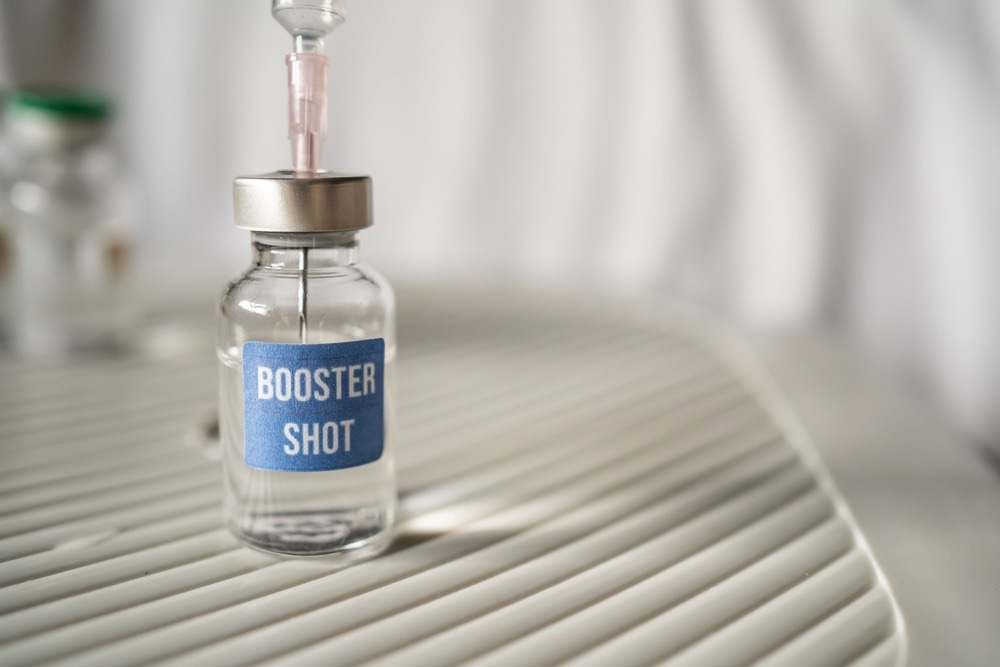Home » Health News »
mRNA boosters associated with decreased odds of hospitalization compared with the mRNA vaccine primary series alone
In a recent study published in JAMA Network, researchers assessed the chances of coronavirus disease 2019 (COVID-19) hospitalization after three versus two messenger ribonucleic acid (mRNA) vaccine doses.

Background
Compared to those who received no severe acute respiratory syndrome coronavirus 2 (SARS-CoV-2) vaccination, those who received a booster dose of the COVID-19 mRNA vaccine had a lower risk of developing severe COVID-19. However, there is insufficient knowledge about the amount of additional protection that a booster vaccine adds and the duration of that protection among those who have already received the entire primary series of an mRNA vaccine.
About the study
The team examined the relationship between the initial mRNA vaccination series alone versus the COVID-19 mRNA booster immunization and the likelihood of COVID-19 hospitalization.
Adults hospitalized between October 1st 2021, and July 26th 2022, in the Providence health care network located in six western US states, were vaccinated with either two or three mRNA doses. Cases were people hospitalized for COVID-19, including persons with a final coded diagnosis of COVID-19 or those who tested positive by the nucleic acid amplification test (NAAT) for symptomatic COVID-19 and were currently being treated with remdesivir or dexamethasone.
Each patient case was matched with four controls who had their second dose of COVID-19 vaccination within seven days of diagnosis and were hospitalized non-electively for causes other than a SARS-CoV-2 infection within three days. From electronic medical records, the team gathered information on demographics, COVID-19 vaccination data, comorbidities, and history of COVID-19 positivity. Using regional estimates from the US Centers for Disease Control and Prevention, the researchers determined whether hospitalization occurred when the SARS-CoV-2 Omicron variant accounted for over 50% of COVID-19 cases in the general population.
The researchers utilized multivariable conditional logistic regression to find variables linked to hospitalization for COVID-19. The likelihood of COVID-19 hospitalization among people vaccinated with three versus two doses of the mRNA vaccine was determined according to the duration since receiving a booster dose.
Results
The study included a total of 12,248 matched controls with an average age of 67.1 years, 46.7% of whom were men, while 3062 COVID-19 cases had a mean age of 70.8 years, of which 52.6% were men and 34.7% were boosted. Factors that showed higher chances of hospitalization due to COVID-19 were the age of 70 years or more, male gender, cognitive illness, diabetes, chronic obstructive pulmonary disease, obesity, immunodeficiency, transplant, rheumatologic disease, and BNT162b2 vaccination.
Booster vaccination against SARS-CoV-2 infection was linked to a lower risk of hospitalization for COVID-19 in the multivariable analysis, with 34.7% of cases compared to 49.3% of matched controls. Depending on the duration passed since the booster was administered, there were different probabilities of hospitalization: fewer than 50 days, 50 to 100 days, 101 to 150 days, and more than 150 days.
Conclusion
Overall, the study findings showed that when compared to the primary series of the mRNA vaccination alone, mRNA boosters were linked with lower risks of hospitalization in a sizable US population. However, the significance of the effect waned with increasing time since the booster dose.
- Ridgway, J. et al. (2022) "Odds of Hospitalization for COVID-19 After 3 vs 2 Doses of mRNA COVID-19 Vaccine by Time Since Booster Dose", JAMA. doi: 10.1001/jama.2022.17811. https://jamanetwork.com/journals/jama/fullarticle/2796847
Posted in: Medical Science News | Medical Research News | Disease/Infection News
Tags: Chronic, Chronic Obstructive Pulmonary Disease, Coronavirus, Coronavirus Disease COVID-19, covid-19, Dexamethasone, Diabetes, Electronic Medical Records, Health Care, Immunization, Immunodeficiency, Nucleic Acid, Obesity, Omicron, Remdesivir, Respiratory, Ribonucleic Acid, SARS, SARS-CoV-2, Severe Acute Respiratory, Severe Acute Respiratory Syndrome, Syndrome, Transplant, Vaccine

Written by
Bhavana Kunkalikar
Bhavana Kunkalikar is a medical writer based in Goa, India. Her academic background is in Pharmaceutical sciences and she holds a Bachelor's degree in Pharmacy. Her educational background allowed her to foster an interest in anatomical and physiological sciences. Her college project work based on ‘The manifestations and causes of sickle cell anemia’ formed the stepping stone to a life-long fascination with human pathophysiology.
Source: Read Full Article

